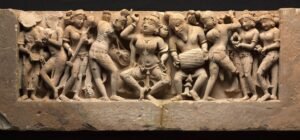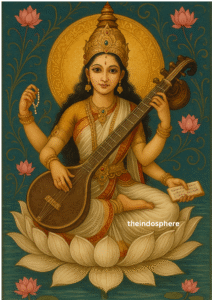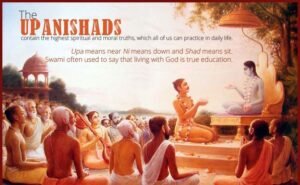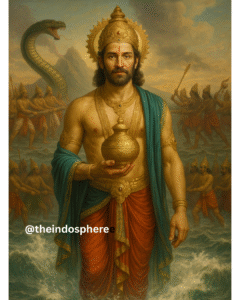Celebrating the Divine Birth of Lord Krishna

Janmashtami, a significant Hindu festival, is celebrated with immense devotion and zeal across India and around the world. Also known as Krishna Janmashtami or Gokulashtami, is a major Hindu festival that celebrates the birth of Lord Krishna, the eighth avatar of Vishnu. It is observed on the eighth day (Ashtami) of the Krishna Paksha (dark fortnight) in the Hindu month of Bhadrapada, which usually falls in August or September.
Significance of Janmashtami
Janmashtami holds immense spiritual significance for Hindus. Lord Krishna is revered as the embodiment of love, compassion, and divine wisdom. His teachings, particularly those in the Bhagavad Gita, continue to inspire millions around the world. The festival symbolizes the victory of good over evil, as Krishna’s birth was meant to free the world from the tyrannical rule of Kansa, his maternal uncle.
The Divine Birth of Lord Krishna:

Janmashtami, also known as Krishna Janmashtami, Krishnashtami, Gokulashtami, or Krishna Jayanti, commemorates the birth of Lord Krishna, a divine figure known for his profound wisdom and compassionate nature. Lord Krishna’s life, as depicted in ancient scriptures such as the Mahabharata and Bhagavad Gita, offers invaluable lessons in spirituality, righteousness, and devotion.

Rituals and Traditions
- Fasting: Devotees observe a fast, which is broken at midnight, the time believed to be Krishna’s birth. Some keep a ‘nirjal’ fast, abstaining from both food and water, while others follow a ‘phalahar’ fast, consuming only fruits and milk.
- Midnight Celebrations: The most significant part of the celebration occurs at midnight. Devotees sing devotional songs, chant mantras, and perform the ‘aarti’ to welcome Lord Krishna’s birth.
- Dahi Handi: In some parts of India, particularly in Maharashtra, the festival is marked by the ‘Dahi Handi’ ceremony. It involves the formation of human pyramids to break an earthen pot filled with curd, butter, and other dairy products, symbolizing the playful and mischievous nature of Krishna.
- Jhankis and Plays: Temples and households create ‘jhankis’ (tableaus) depicting scenes from Krishna’s life. Additionally, plays and dances, known as ‘Raslilas’, are performed, narrating the tales of Krishna’s childhood and his exploits with the Gopis.
- Decorating Idols: Devotees adorn idols of baby Krishna, placing them in cradles. Homes and temples are beautifully decorated with flowers, lights, and rangolis.
Celebrations Across India
Mathura and Vrindavan: These towns, associated with Krishna’s childhood, are the epicenters of Janmashtami celebrations. The festivities are grand, with temple rituals, processions, and cultural performances.
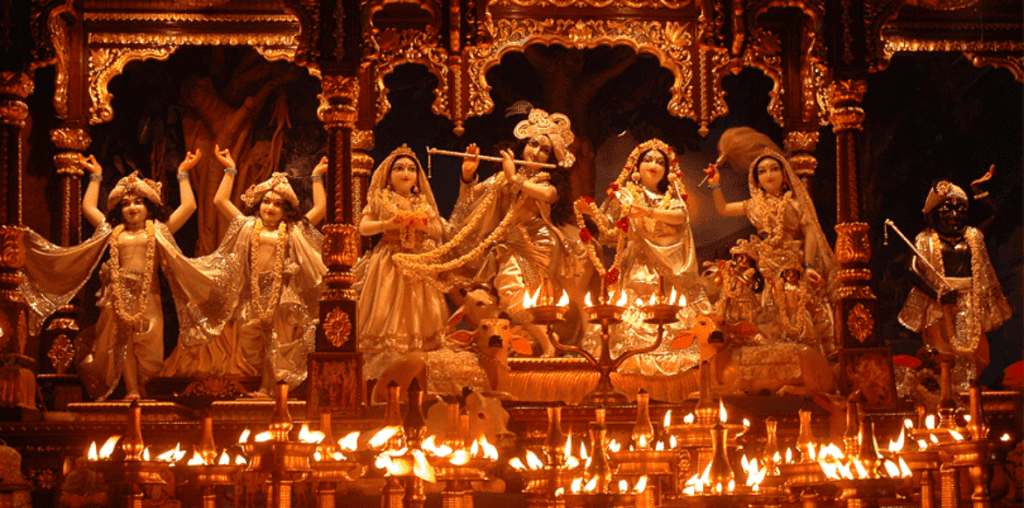
Maharashtra: Here, the Dahi Handi event is a major attraction, drawing large crowds. Teams compete to form the tallest human pyramid to break the pot, with prizes for the winning team.

Gujarat: The festival is celebrated with much enthusiasm in Dwarka, the city believed to have been founded by Lord Krishna. Devotees throng the Dwarkadhish Temple to participate in the rituals.
South India: In Tamil Nadu, people draw tiny footprints from the threshold of their homes to the prayer room, symbolizing the arrival of the child Krishna.
Date and Timing:
Janmashtami typically falls on the eighth day (Ashtami) of the dark fortnight in the Hindu lunar month of Bhadrapada, corresponding to August or September in the Gregorian calendar. Devotees eagerly await this auspicious day, and preparations for the festivities begin well in advance.
Preparations and Decorations:
In anticipation of Janmashtami, devotees engage in thorough cleaning and embellishing of their homes and temples. Elaborate rangoli designs, fragrant flowers, and colorful garlands adorn these spaces. The centerpiece of the decorations is the “jhanki,” a beautifully crafted tableau depicting scenes from Lord Krishna’s life, often featuring the infant Krishna in a cradle. Fasting, prayer, and meditation are also common practices during this period to purify the mind and soul.
Midnight Celebrations:
Lord Krishna is believed to have been born at the stroke of midnight, and thus, the main Janmashtami celebrations take place during the late hours. Temples and homes come alive with the melodious singing of devotional songs, spirited dancing, and recitations of hymns dedicated to Lord Krishna. Devotees maintain a night vigil, eagerly awaiting the auspicious moment to celebrate the birth of the divine child.
The Bhagavad Gita: A Beacon of Wisdom:
Janmashtami serves as a reminder of the profound teachings of Lord Krishna encapsulated in the Bhagavad Gita. This sacred scripture, a conversation between Lord Krishna and the warrior prince Arjuna, imparts timeless wisdom and guidance on life, duty, and spirituality.
Key Teachings of Lord Krishna:
- Dharma and Duty: Lord Krishna emphasizes the importance of fulfilling one’s duty (dharma) with dedication, regardless of the outcome. This principle encourages individuals to act with integrity and responsibility in all aspects of life.
- Detachment and Selflessness: Lord Krishna teaches the path of selfless action, emphasizing that true spiritual growth comes from performing one’s duties without attachment to personal gain. Detachment leads to inner peace and realization of the divine.
- Devotion and Surrender: Lord Krishna extols unwavering devotion (bhakti) as a means to attain union with the divine. Surrendering the ego and seeking refuge in God are central tenets of this teaching.
- Equality and Non-discrimination: Lord Krishna emphasizes the equality of all beings in the eyes of the divine, rejecting discrimination based on social status, caste, or gender. His teachings promote inclusivity and compassion.
- The Impermanence of Life: Lord Krishna reminds us of the transient nature of the material world and the eternal nature of the soul (atman). Understanding this impermanence enables individuals to navigate life’s challenges with equanimity.
Janmashtami Today:
In contemporary times, Janmashtami is celebrated not only in India but also in various parts of the world where the Indian diaspora has flourished. The festival has transcended geographical boundaries, uniting people of diverse backgrounds in their reverence for Lord Krishna.
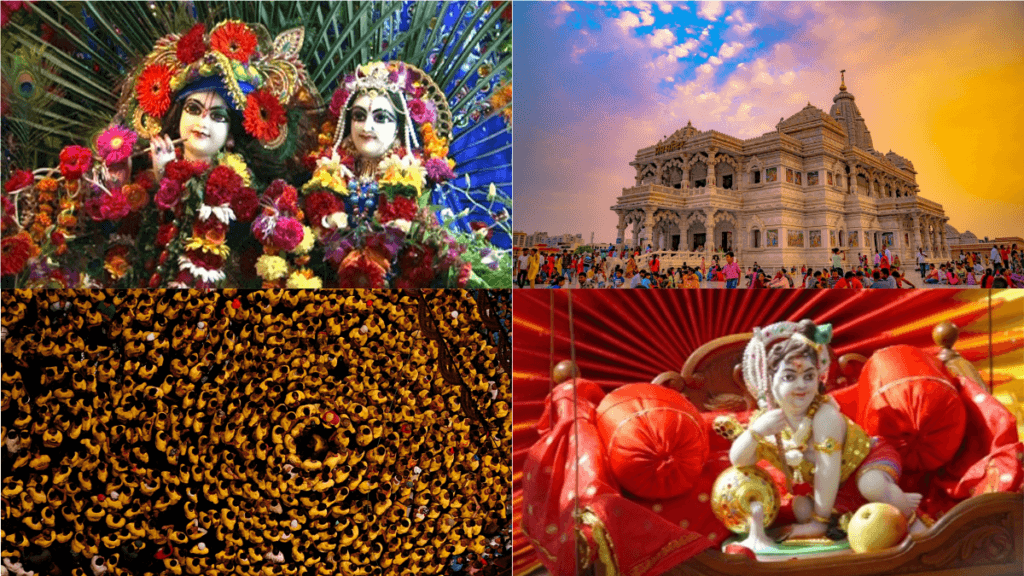
Global Celebrations:
Janmashtami is celebrated with great enthusiasm in countries such as the United States, the United Kingdom, Canada, Australia, and various European nations with significant Indian communities. Temples and cultural organizations organize special events, including devotional music, dance performances, and recitations from the Bhagavad Gita.
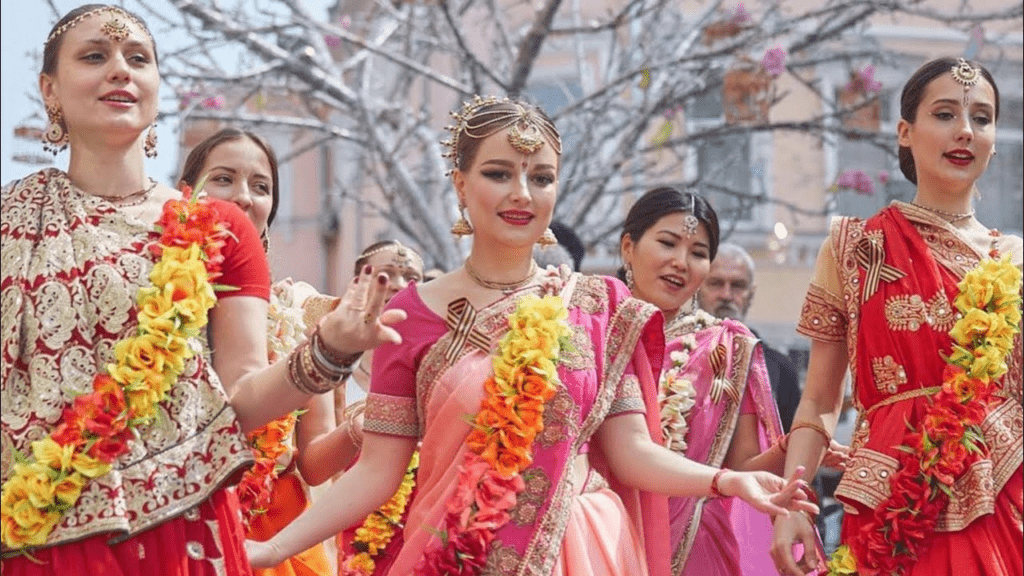
Celebration Of Spirituality:
Janmashtami is a celebration of spirituality, devotion, and the timeless teachings of Lord Krishna. It transcends cultural boundaries and unites people in their quest for divine wisdom and inner transformation. As Janmashtami approaches, it serves as a reminder to seek the light of wisdom and righteousness in our lives, much like Lord Krishna’s eternal message in the Bhagavad Gita.



